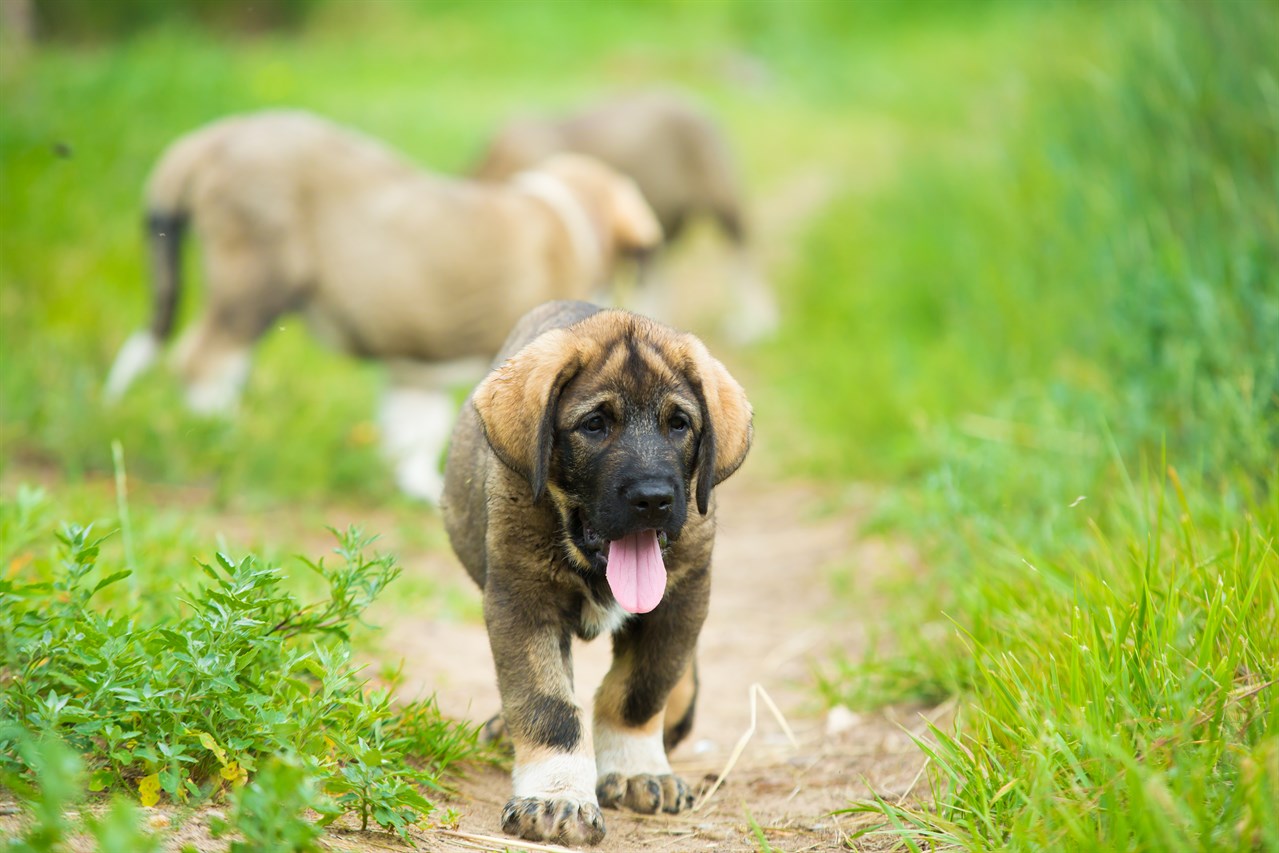Expected Life Span of the Spanish Mastiff

The Spanish Mastiff is a robust and generally healthy breed, but like all dogs, their lifespan can be influenced by various factors. On average, Spanish Mastiffs have a life expectancy of around 10 to 12 years. However, several factors can impact their longevity.
Factors Affecting Spanish Mastiff Lifespan
- Size: Larger dog breeds, including Spanish Mastiffs, tend to have shorter lifespans compared to smaller breeds. The demands on their bodies, especially their joints and organs, can lead to a shorter lifespan.
- Genetics: Genetics play a significant role in determining a dog's lifespan. Spanish Mastiffs with strong genetic backgrounds from responsible breeders may live longer and have fewer health issues.
- Nutrition: Proper nutrition throughout their life is crucial for overall health and longevity. Maintaining a balanced diet and avoiding obesity can have a positive impact on their lifespan.
- Exercise: Regular exercise helps maintain muscle tone, a healthy weight, and overall vitality. Lack of physical activity can lead to obesity and related health problems, potentially reducing their lifespan.
- Healthcare: Regular veterinary check-ups, vaccinations, and preventative care are essential for early detection and management of health issues. Spanish Mastiffs should be screened for breed-specific health concerns.
- Breed-Specific Health Issues: Like many large breeds, Spanish Mastiffs are prone to certain health conditions that can affect their lifespan. These may include hip dysplasia, bloat (gastric torsion), and heart issues.
- Lifestyle: The living environment and lifestyle of a Spanish Mastiff can also influence their lifespan. A safe, stress-free, and loving home can contribute positively to their overall well-being.
- Spaying/Neutering: The timing of spaying or neutering can impact a dog's lifespan. Some studies suggest that delaying these procedures may lead to a longer life, as it allows for full maturation of the dog's body.
Why do Mastiffs not live long?
Mastiffs, including the Spanish Mastiff, tend to have shorter lifespans compared to smaller dog breeds due to several factors:
- Size: Larger dogs age more rapidly and have greater stress on their organs and joints, which can contribute to a shorter lifespan.
- Genetic Factors: Some Mastiff breeds are prone to specific genetic health issues that can affect their longevity.
- Hip Dysplasia: Hip dysplasia is a common issue in Mastiff breeds, which can lead to mobility problems and discomfort.
- Gastric Torsion (Bloat): Bloat is a life-threatening condition that is more prevalent in deep-chested breeds like Mastiffs.
- Heart Issues: Some Mastiffs may be predisposed to heart-related problems, which can impact their lifespan.
- Obesity: Mastiffs are prone to obesity, and carrying excess weight can lead to various health problems and a shorter life.
While the lifespan of Mastiffs may be relatively shorter compared to smaller breeds, responsible breeding, proper care, and attention to their specific health needs can help ensure that they live a long and fulfilling life. Regular veterinary care and a healthy lifestyle are essential for maximising their years of companionship.
Spanish Mastiff puppies for sale
- Find Spanish Mastiff puppies for sale in ACT
- Find Spanish Mastiff puppies for sale in NSW
- Find Spanish Mastiff puppies for sale in NT
- Find Spanish Mastiff puppies for sale in QLD
- Find Spanish Mastiff puppies for sale in SA
- Find Spanish Mastiff puppies for sale in TAS
- Find Spanish Mastiff puppies for sale in VIC
- Find Spanish Mastiff puppies for sale in WA